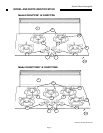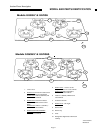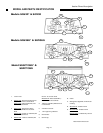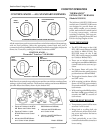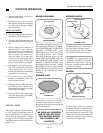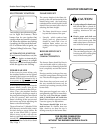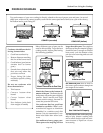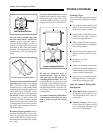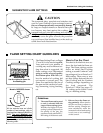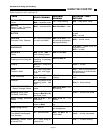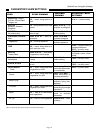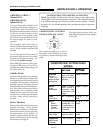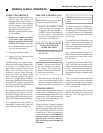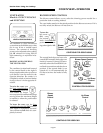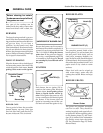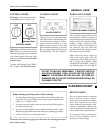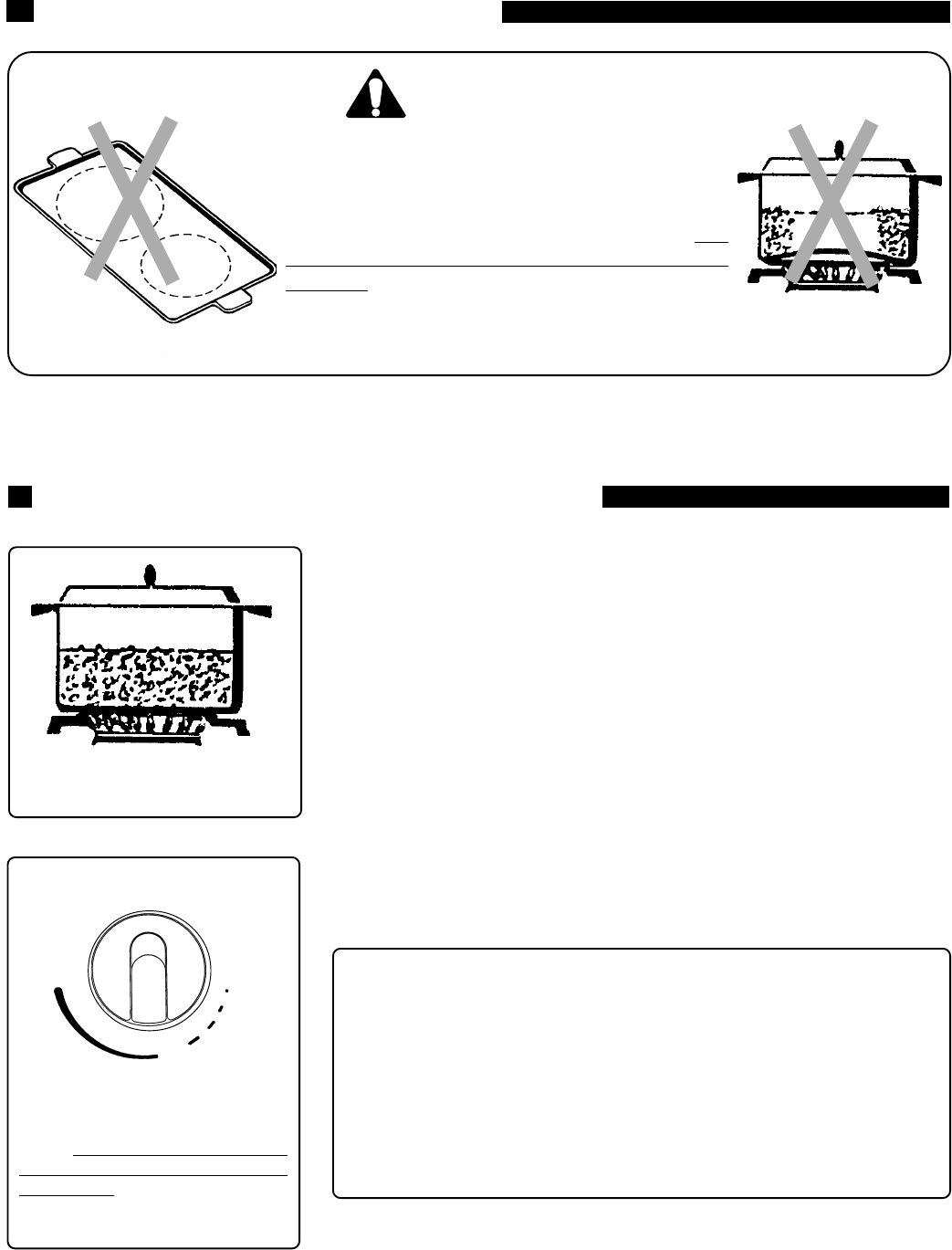
CAUTION
Use the right size flame for
the cooking job
SUGGESTED FLAME SETTINGS
Section Four: Using the Cooktop
FLAME SETTING CHART GUIDELINES
LO
Medium
XLO
3
4
2
1
HI
All the controls have an infinite
number of heat settings, with no
fixed positions between HI, LO or
XLO. The word (Medium) and
number designations are for ref-
erence only and are guides to the
flame settings referenced in the
following chart.
OFF
Models GGS/SGS shown
Page 16
The tempered glass, porcelain and stainless steel
used for your cooktop is heat resistant; however,
the use of improper utensils can possibly damage
it. Large or warped utensils or utensils that span
two burners, trap heat against the cooktop. The
trapped heat goes into the cooktop and overheats
the glass which through repeated use of could
eventually cause the glass to break; the porcelain
top could craze (fine hairlike lines) or the steel top
could show heat discoloration.
1. The actual flame setting used
to cook is selected from the
range of flame settings given.
Whether the higher or lower
setting is selected depends on
the quality of the pan, the
amount of food, and the BTU/
HR rating of the burner used.
Guidelines:
2. Raise or lower the flame set-
ting gradually. Allow time for
the pan and food to adjust to
the new setting. Changes are
more satisfactory when the
increased or decreased setting
is only one or two markings
on the control.
How to Use the Chart
The chart is divided into two sec-
tions: the food and the flame set-
tings. The flame settings section
shows an initial Start Cooking
setting, a second Continue Cook-
ing setting and/or an ExtraLow™
Heat setting. There may or may
not be a change between the two
Start Cooking and the Continue
Cooking settings depending on
the food prepared. The
ExtraLow™ Heat (see pages 17-
18) setting can be either a cook-
ing, or a holding setting.
The Flame Setting Chart, on Pages
17 and 18, is to be used as a guide.
Your pans and your manner of
cooking may need a different set-
ting than what is suggested. All
flame settings were determined
using a variety of good quality,
flat bottom pans with lids (un-
less the method of cooking did
not require a covered pan). The
flame was matched to the size of
the pan and the method of cook-
ing: simmering, frying, braising,
etc.



